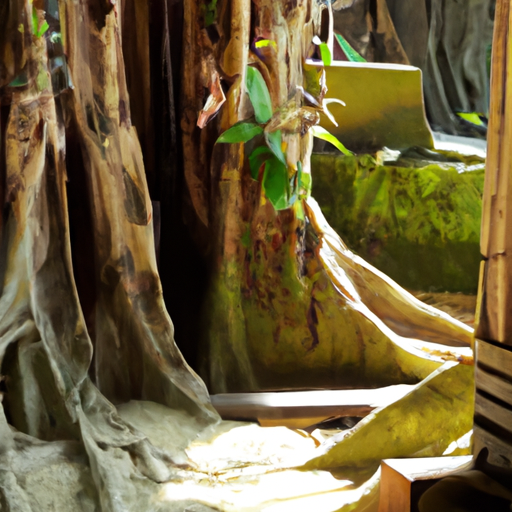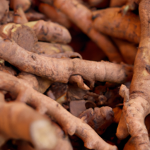The Origins of Traditional Chinese Medicine (TCM)
Traditional Chinese Medicine (TCM) is a holistic approach to healthcare that has been practiced for thousands of years. Its origins can be traced back to ancient China, where it developed alongside other traditional practices such as acupuncture and herbal medicine. TCM is deeply rooted in the belief that the body is a complex system of interconnected parts, and that maintaining balance and harmony within this system is essential for good health.
The origins of TCM can be traced back to the ancient philosophy of Yin and Yang, which is based on the idea that all things in the universe are interconnected and interdependent. Yin and Yang are opposing forces that exist in a state of dynamic equilibrium. In TCM, health is believed to be the result of a balance between these two forces, and illness is seen as an imbalance or disruption in this equilibrium.
Another important concept in TCM is the idea of Qi, which can be loosely translated as “vital energy.” Qi flows through the body along specific pathways called meridians, and when this flow is disrupted, it can lead to illness. TCM practitioners use various techniques, such as acupuncture and herbal medicine, to restore the flow of Qi and bring the body back into balance.
The practice of TCM has its roots in ancient Chinese culture and has been passed down through generations. It is believed to have originated more than 2,500 years ago, during the Zhou Dynasty. The earliest known written record of TCM is the Huangdi Neijing, or the Yellow Emperor’s Inner Canon, which is believed to have been written around 300 BCE. This text is considered one of the foundational texts of TCM and provides a comprehensive overview of the principles and practices of this ancient healing system.
Over the centuries, TCM has evolved and adapted to changing times and circumstances. It has absorbed influences from other cultures and medical traditions, such as Ayurveda from India and Persian medicine. TCM has also been influenced by the philosophical and spiritual traditions of Taoism and Confucianism, which emphasize the importance of living in harmony with nature and the natural rhythms of the universe.
Despite its ancient origins, TCM continues to be a relevant and widely practiced form of healthcare in modern times. It is recognized by the World Health Organization (WHO) as a valid and effective system of medicine and is integrated into the healthcare systems of many countries around the world. In recent years, there has been a growing interest in TCM among Western audiences, who are drawn to its holistic approach and focus on prevention and wellness.
In conclusion, the origins of Traditional Chinese Medicine can be traced back to ancient China, where it developed alongside other traditional practices. Its roots lie in the ancient philosophy of Yin and Yang and the concept of Qi. TCM has been passed down through generations and has evolved over time, absorbing influences from other cultures and medical traditions. Despite its ancient origins, TCM remains a relevant and widely practiced form of healthcare in modern times, with a growing interest from Western audiences. Its holistic approach and focus on balance and harmony continue to resonate with people seeking alternative forms of healthcare.
Ancient Chinese Herbal Remedies and Their Modern Applications

Ancient Roots: Tracing TCM’s Millennia-Old Journey
Traditional Chinese Medicine (TCM) is a holistic healing system that has been practiced for thousands of years. Its origins can be traced back to ancient China, where it was developed based on the belief that the human body is a microcosm of the universe and is interconnected with nature. TCM encompasses various practices, including acupuncture, herbal medicine, massage, and dietary therapy, all aimed at restoring balance and harmony within the body.
One of the key components of TCM is the use of herbal remedies. Ancient Chinese herbal medicine has a rich history that dates back over 2,000 years. The earliest known record of herbal medicine in China can be found in the Huangdi Neijing, or the Yellow Emperor’s Inner Canon, which is considered the foundational text of TCM. This text describes the use of various herbs and their therapeutic properties.
In ancient China, herbal medicine was not only used to treat illnesses but also to prevent them. The Chinese believed in the concept of “yang sheng,” which means nourishing life. This concept emphasized the importance of maintaining good health through proper nutrition, exercise, and the use of herbal remedies. Herbal medicine was seen as a way to strengthen the body’s natural defenses and promote overall well-being.
Over the centuries, Chinese herbal medicine has evolved and adapted to changing times. Today, many of the ancient herbal remedies are still used in TCM clinics around the world. These remedies are often prescribed in combination with other TCM therapies to address specific health conditions.
One example of an ancient Chinese herbal remedy that is still widely used today is ginseng. Ginseng has been used in TCM for thousands of years and is believed to have a wide range of health benefits. It is often used to boost energy, improve mental clarity, and strengthen the immune system. Modern research has also shown that ginseng may have anti-inflammatory and antioxidant properties.
Another ancient Chinese herb that has gained popularity in recent years is astragalus. Astragalus is known for its immune-boosting properties and is often used to prevent and treat respiratory infections, such as the common cold and flu. It is also believed to have anti-aging effects and may help protect against chronic diseases, such as heart disease and cancer.
While ancient Chinese herbal remedies have stood the test of time, they have also been adapted to meet the needs of modern society. Today, many TCM practitioners combine traditional herbal medicine with modern scientific research to develop new treatments. This integration of ancient wisdom and modern knowledge has led to the development of innovative herbal formulas that are effective in treating a wide range of health conditions.
In conclusion, the ancient roots of TCM’s herbal remedies can be traced back thousands of years. These remedies have been used to promote health and well-being in ancient China and continue to be used today. The integration of ancient wisdom with modern scientific research has allowed TCM to evolve and adapt to the needs of modern society. As more people seek natural and holistic approaches to healthcare, the ancient herbal remedies of TCM are likely to continue playing a significant role in promoting health and wellness.
Exploring the Influence of Ancient Chinese Philosophies on TCM
Ancient Roots: Tracing TCM’s Millennia-Old Journey
Traditional Chinese Medicine (TCM) is a holistic healing system that has been practiced for thousands of years. Its origins can be traced back to ancient Chinese philosophies, which have greatly influenced its principles and practices. In this article, we will explore the profound impact of these philosophies on TCM and how they have shaped its development over the centuries.
One of the key philosophies that underpins TCM is Taoism. Taoism emphasizes the importance of living in harmony with nature and the universe. This belief is reflected in TCM’s approach to health and well-being, which focuses on restoring balance and harmony within the body. According to Taoist principles, illness is seen as a result of imbalances or blockages in the flow of Qi, the vital energy that circulates throughout the body. TCM treatments aim to restore the flow of Qi and bring the body back into balance.
Another influential philosophy in TCM is Confucianism. Confucianism places great importance on the concept of harmony and balance in all aspects of life, including health. In TCM, the balance between Yin and Yang is crucial for maintaining good health. Yin represents the feminine, passive, and cooling aspects, while Yang represents the masculine, active, and warming aspects. TCM treatments aim to restore the balance between Yin and Yang, as an imbalance can lead to various health issues.
Buddhism, another ancient Chinese philosophy, has also had a significant impact on TCM. Buddhism emphasizes the interconnectedness of all living beings and the importance of compassion and mindfulness. These principles are reflected in TCM’s holistic approach to health, which takes into account not only the physical symptoms but also the emotional and spiritual well-being of the individual. TCM treatments often include practices such as acupuncture, herbal medicine, and meditation, which aim to address the root cause of the illness and promote overall well-being.
The influence of these ancient Chinese philosophies on TCM can also be seen in its diagnostic methods. TCM practitioners use a combination of observation, questioning, and palpation to assess the patient’s condition. This holistic approach takes into account not only the physical symptoms but also the patient’s emotional state, lifestyle, and environment. By considering all these factors, TCM practitioners are able to provide a comprehensive diagnosis and tailor treatment plans that address the underlying causes of the illness.
Furthermore, the philosophies of Taoism, Confucianism, and Buddhism have also shaped the development of TCM therapies. Acupuncture, one of the most well-known TCM treatments, is based on the concept of Qi and the meridian system. By inserting thin needles into specific points along the meridians, TCM practitioners aim to restore the flow of Qi and promote healing. Herbal medicine, another integral part of TCM, utilizes the healing properties of various plants and minerals to restore balance and treat specific health conditions.
In conclusion, the ancient Chinese philosophies of Taoism, Confucianism, and Buddhism have had a profound influence on the development of TCM. These philosophies have shaped TCM’s principles, diagnostic methods, and treatment modalities, making it a holistic healing system that takes into account the interconnectedness of the body, mind, and spirit. By understanding the ancient roots of TCM, we can gain a deeper appreciation for its millennia-old journey and its continued relevance in promoting health and well-being.


